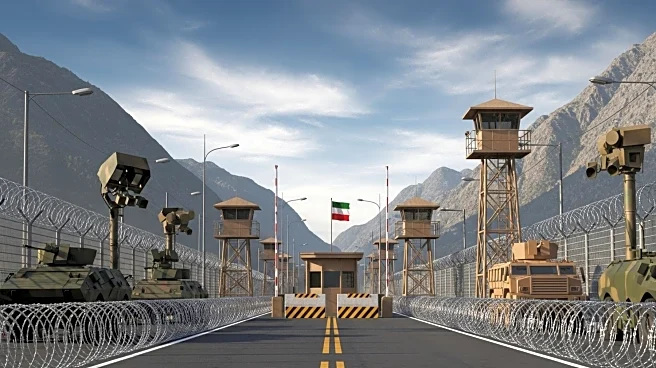What's Happening?
Pakistan's Foreign Ministry has described recent military actions in Afghanistan as legitimate counterterrorism operations aimed at protecting its citizens from threats posed by militant groups, including the Tehrik-i-Taliban Pakistan (TTP). Although the ministry did not directly confirm airstrikes in Kabul, spokesperson Shafqat Ali Khan emphasized the operations were intelligence-based and necessary for national security. The Taliban's Ministry of Defense condemned these actions, accusing Pakistan of violating Afghanistan's airspace and targeting civilian areas. Tensions between the two countries have escalated, with Pakistan accusing the Taliban of harboring TTP militants responsible for attacks on Pakistani soil, while the Taliban denies these allegations.
Why It's Important?
The situation highlights the fragile relationship between Pakistan and Afghanistan, which has been strained by mutual accusations and security concerns. Pakistan's actions reflect its determination to combat cross-border terrorism, but they also risk further destabilizing the region. The Taliban's condemnation of the strikes underscores the potential for increased hostilities, which could impact regional security and complicate efforts to stabilize post-U.S. Afghanistan. The ongoing mistrust between the two nations may hinder cooperation on intelligence and border management, essential for addressing security challenges and preventing retaliatory actions.
What's Next?
The future of Pakistan-Afghanistan relations may depend on both countries' willingness to engage in dialogue and revive intelligence cooperation. Without these efforts, the risk of retaliatory strikes and further escalation remains high. Regional observers warn that continued tensions could lead to a dangerous cycle of conflict, affecting not only bilateral relations but also broader South Asian security dynamics. Stakeholders, including international organizations and neighboring countries, may need to intervene to facilitate communication and prevent further deterioration of relations.
Beyond the Headlines
The ongoing conflict between Pakistan and Afghanistan raises ethical and legal questions about sovereignty and the right to self-defense. Pakistan's justification of its actions as counterterrorism measures may be challenged by international norms regarding cross-border military operations. Additionally, the situation reflects broader geopolitical pressures in South Asia, where regional powers vie for influence and stability. The conflict could have long-term implications for regional alliances and the balance of power.








